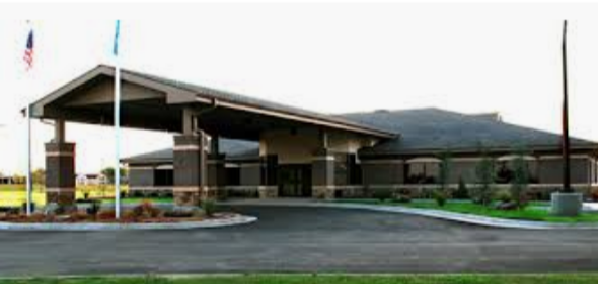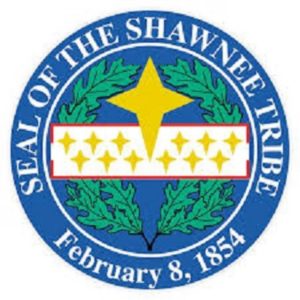
- Details
- By Native News Online Staff
MIAMI, Okla. — Three individuals with vast experience in American Indian law have been named to the Shawnee Tribe’s inaugural Supreme Court.
The appointments of Pamela Hart, Kristen Carpenter and Robert J. Miller were announced on Friday by Shawnee Tribe Chief Ben Barnes.
 “Our Tribe has always maintained and continued our culture and traditions,” Chief Barnes said. “It is my hope that with the creation of this Supreme Court for our nation, not only will we continue to grow our sovereignty as expressed through this action, but continue to legislate protections for our peoples inherit rights to our traditional religions, to practice their culture, and to codify the United Nations Declaration on the Rights of Indigenous People into Shawnee Law as well as, ultimately, translate it into our Shawnee language.”
“Our Tribe has always maintained and continued our culture and traditions,” Chief Barnes said. “It is my hope that with the creation of this Supreme Court for our nation, not only will we continue to grow our sovereignty as expressed through this action, but continue to legislate protections for our peoples inherit rights to our traditional religions, to practice their culture, and to codify the United Nations Declaration on the Rights of Indigenous People into Shawnee Law as well as, ultimately, translate it into our Shawnee language.”
Pamela Hart, a citizen of the Shawnee Tribe, graduated from the University of Tulsa law school in 1990 and specialized in Indian Law. Hart was admitted to the Oklahoma Bar Association in 1991, where she joined her father George P. Pitcher to form Vinita, Okla.-based Pitcher & Pitcher-Hartley Law firm. Hart has served as the public defender for the State of Oklahoma in Craig County and specialized in Family Law. Hart currently practices law as the sole Partner of Pitcher & Pitcher-Hartley Law firm. Hart will serve as the first chair on the Shawnee Supreme Court.
Kristen Carpenter is currently the Council Tree Professor of Law and Director of the American Indian Law Program at the University of Colorado Law School. Professor Carpenter also serves on the United Nations Expert Mechanism on the Rights of Indigenous Peoples as its member from North America. She is a graduate of Dartmouth College and Harvard Law School. At Colorado Law, Professor Carpenter teaches and writes in the areas of Property, Cultural Property, American Indian Law, Human Rights, and Indigenous Peoples in International Law. She has published several books and legal treatises on these topics, and her articles appear in leading law reviews. Professor Carpenter has been awarded the Provost's Award for Faculty Achievement, and the Outstanding New Faculty Award.
Robert (Bob) J. Miller, an enrolled citizen of the Eastern Shawnee Tribe, is the Interim Chief Justice for the Pascua Yaqui Tribe Court of Appeals and sits as a judge for other tribes. He is the Willard H. Pedrick Distinguished Research Scholar at Arizona State University and the Faculty Director of the Rosette LLP American Indian Economic Development Program at ASU. Before joining ASU in 2013, Professor Miller was on the faculty of Lewis & Clark Law School from 1999-2013. Prior to his career in academia, he practiced Indian law with Hobbs, Straus, Dean & Walker, and practiced litigation for the Stoel Rives law firm.
More Stories Like This
Native News Weekly (August 25, 2024): D.C. BriefsMonday Morning: (February 16, 2026): Articles You May Have Missed This Past Weekend
US Presidents in Their Own Words Concerning American Indians
Osage Nation Mourns the Passing of Former Principal Chief Jim Gray
Native News Weekly (February 15, 2026): D.C. Briefs
Help us defend tribal sovereignty.
At Native News Online, our mission is rooted in telling the stories that strengthen sovereignty and uplift Indigenous voices — not just at year’s end, but every single day.
Because of your generosity last year, we were able to keep our reporters on the ground in tribal communities, at national gatherings and in the halls of Congress — covering the issues that matter most to Indian Country: sovereignty, culture, education, health and economic opportunity.
That support sustained us through a tough year in 2025. Now, as we look to the year ahead, we need your help right now to ensure warrior journalism remains strong — reporting that defends tribal sovereignty, amplifies Native truth, and holds power accountable.
 The stakes couldn't be higher. Your support keeps Native voices heard, Native stories told and Native sovereignty defended.
The stakes couldn't be higher. Your support keeps Native voices heard, Native stories told and Native sovereignty defended.
Stand with Warrior Journalism today.
Levi Rickert (Potawatomi), Editor & Publisher

